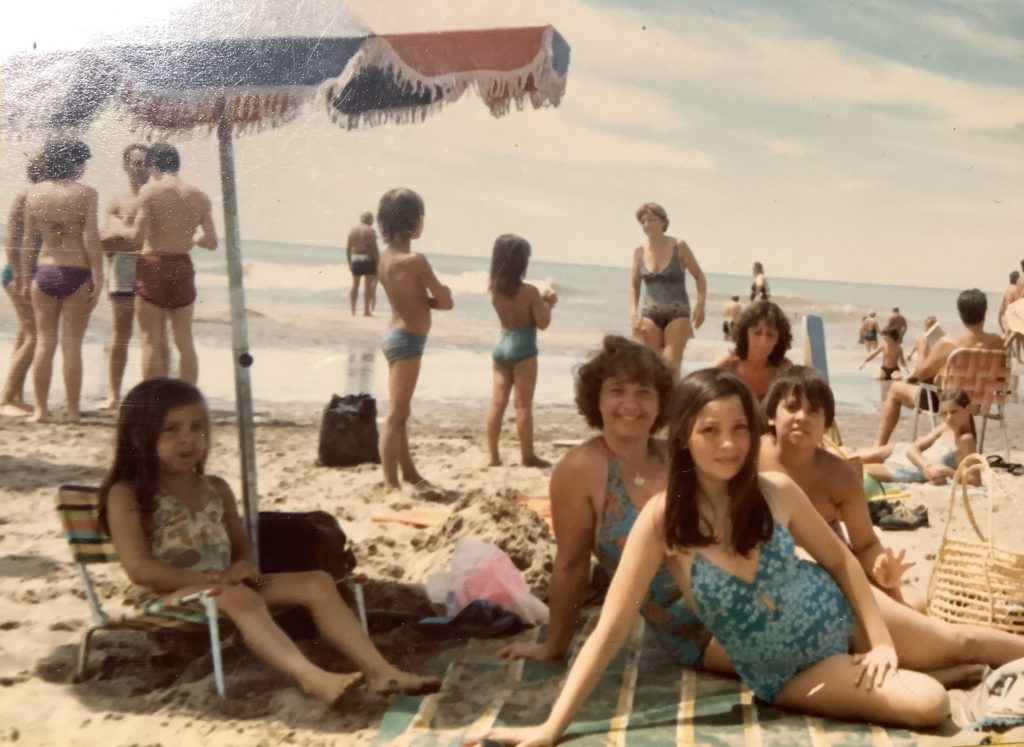When I was 12ish I tried to write a mystery novel. The year before, I had been introduced to Agatha Christie and I had become an instant fan. Over the course of the next few years, I would go on to own every one of her books, which I numbered in order of their publication date.
The novels were cheap, barely more than the cost of a Condorito or a Disney magazine and available at newsstands. On those occasions when my parents or my aunt Gladys would take us to a newsstand and offer to buy us something, I would opt for one of these books. My aunt Gladys had been a fan as well, she had a handful of the slim English language versions that had been discarded from the book club she attended monthly. I don’t think they discussed books at her book club, merely socialized and borrowed English language novels from each other.
So that summer before seventh grade, the last summer I spent with my family in Argentina, I wanted to imitate Dame Agatha and write a mystery novel of my own.
We were spending a fortnight- or maybe just a week, that treacherous memory and all – in a small house we had rented near the beach in Villa Gesell. It was a very simple house, built as part of a complex of similar vacation rentals. The setting seemed promising for a novel. It still does, but I never could figure out even a rudimentary plot. I did write notes, characters and even perhaps some narrative on the backs of discarded ravioli boxes. I think we kept those for a while, until we didn’t.

I wasn’t fond of those ravioli. I’m not exactly sure why, as I’m pretty sure I ate ravioli – I do recall eating both fresh red fideos from a pasta shop near our apartment, though only with Swift tuco, and canelones con salsa blanca – though my pickiness was such that I might not have at all. I am pretty sure I didn’t eat these ravioli. They came from a restaurant in town and there were always lines of people waiting for tables or takeout. My mom would tell us how smart and lucky we were to be able to buy them raw and cook them ourselves. At least, they provided me with a writing surface. I had not had the foresight to travel with a notebook or even blank paper. I know better now.
My second attempt to write a mystery novel came about a year later, while we were already in the US. And this novel, which never developed beyond a list of characters and a page of text, I do remember. It concerned a rich guy, whose name unfortunately escapes me but I feel I remembered for a long time and only recently have forgotten. He had four children. It might have been six. The two youngest, a girl and a boy, were obviously me and the older brother I had started to fantasize about. The father, Mr. I-can’t-quite-recall-his-name is murdered in the middle of the night. Everyone wakes up, the police comes and investigates and… then what? That’s what I asked myself. Do you go back to sleep when your father has died? To me that seemed very unlikely, but I had no experience with family members dying at night. So instead I had my intrepid young detectives meet in one of their rooms to plan their course of action. But they wouldn’t really do that, I thought. The girl would want to cry, I thought. Wouldn’t I cry if my father had just died? Would I be in the emotional state to investigate his murder?

It took 40 years, but I finally found out. When I was told my father had died I cried, and wailed, and cried again. But you can only cry so much (wailing, in particular, is pretty exhausting). Eventually you calm down and ask questions. Investigate. It turns out that that is also exhausting, and you go back to crying, and maybe some wailing, but less. Eventually I did go to sleep.


Recent Comments